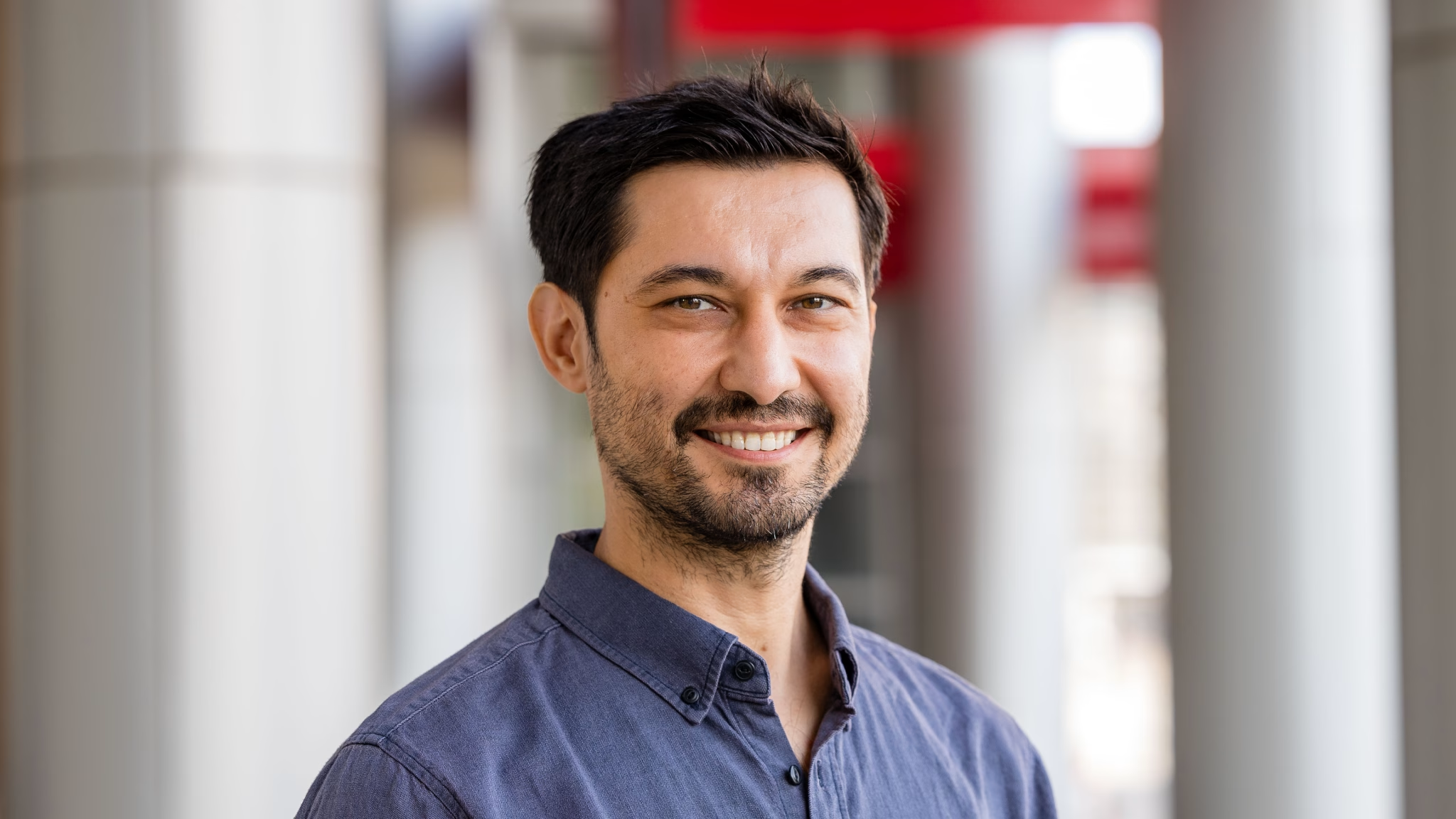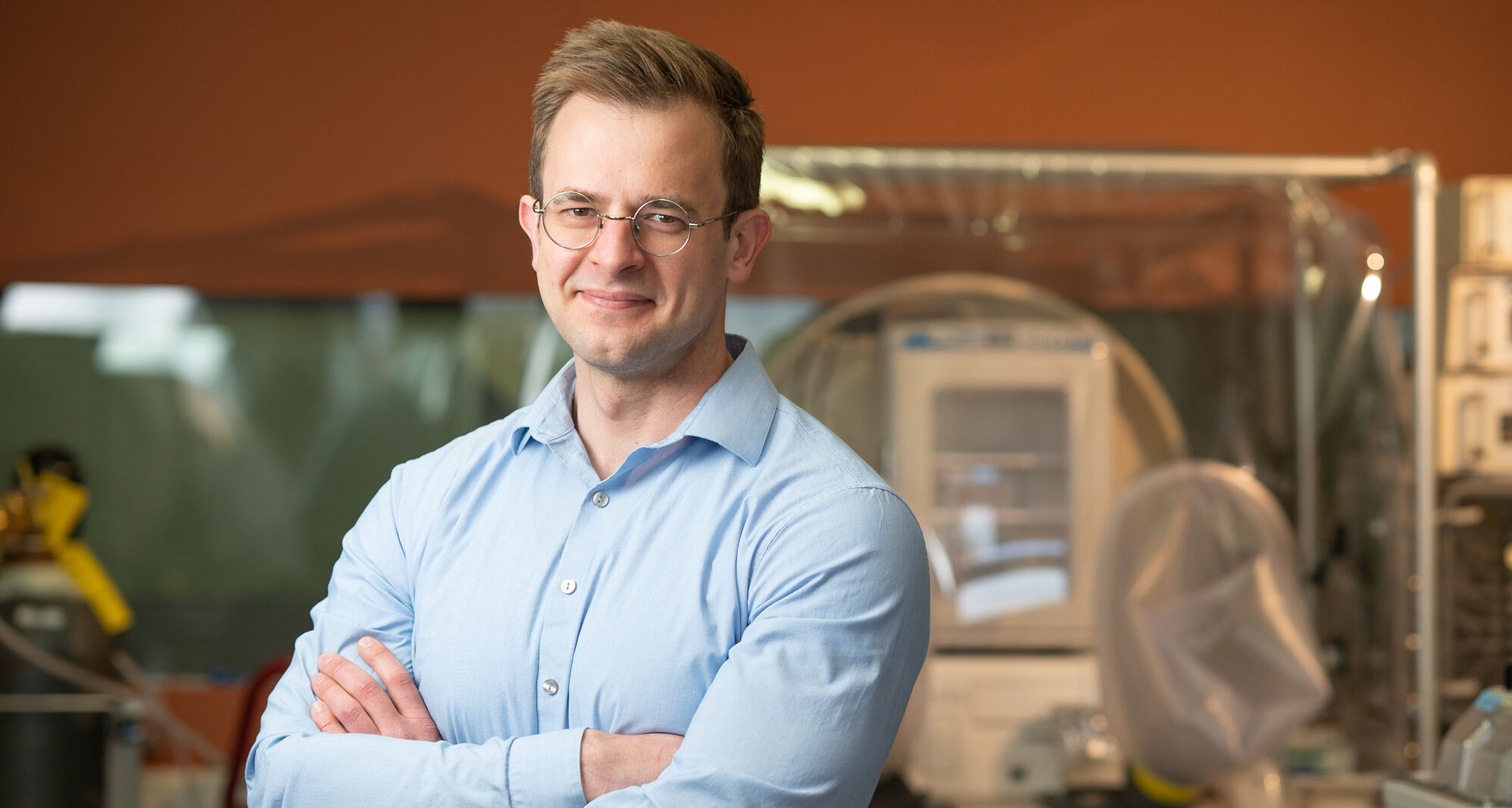WID Researcher Receives NSF CAREER Award to Improve the Genetic Engineering of Stem Cells
From a simple blood draw, Krishanu Saha, a researcher in WID’s BIONATES research group and assistant professor of biomedical engineering, could enable doctors to create stem cells to develop drugs personalized to their patients.
As part of his $400,000 National Science Foundation CAREER Award over the next five years, Saha will focus on improving the process to directly evolve DNA sequences and proteins in human stem cells. Stem cells have the potential to develop into many different cell types, which makes them ideal for a variety of medical research projects. The evolution of synthetic DNA sequences in human stem cells could catalyze the advanced manufacturing of stem cells for a variety of applications, ranging from tissue engineering to personalized medicine.

Kris Saha
Currently, genetically engineering stem cells is expensive and difficult, which makes manufacturing them an issue.
“The primary way in which biologists have been modifying stem cells is to cut specific spots in the genome and then add foreign DNA,” Saha says. “Then, biologists can insert new sequences or correct problematic mutations.”
This method of integrating foreign DNA is inefficient in human stem cells, particularly on a scale large enough to query the multitude of DNA sequences that may help in the advanced manufacturing of these cells. Typically, researchers anticipate that millions to billions of cells are necessary for therapeutic applications or disease modeling.
Saha and his students are developing a genetic engineering tool that produces mutations at specific and defined genomic locations. This tool uses a single cutting protein, the CRISPR/Cas9 protein, to make a defined cut in the genome. “Using this cut and without using foreign DNA, we aim to make libraries of mutants around that cut site,” he says.
“I don’t see ethics as something divorced from science; rather, thinking about and addressing the supposedly separate ethics questions in my lab work can be a catalyst to ask new and better scientific questions,”
— Kris Saha
The research is inspired by a chemical engineering idea called “directed evolution,” Saha says. Just as a chemical engineer can directly evolve enzymes in bacteria for particular purposes — for example, evolving low-temperature enzymes for household laundry detergents — biomedical engineers can direct evolutionary processes on human proteins within stem cells for a particular application.
“By incorporating evolved genetic circuits built by synthetic biologists, you could use engineered cells therapeutically in new ways — for example, to rebuild the heart tissue of a heart attack victim, as well as mitigate inflammation and scarring,” he says.
In addition to the research, Saha plans to partner with community colleges to create and teach CRISPR/Cas9 genome editing training modules. Over the next few summers, Saha plans to teach hands-on genome editing workshops at Madison College in Wisconsin, and in partnership with the Cold Spring Harbor Laboratory in New York.
“Many of these genome editing experiments do not require sophisticated equipment compared to the other ways of editing cells and could be done in many labs,” he says. “Teaching is particularly rewarding when it links directly to the new, exciting things we’re doing in the lab.”
And beyond hands-on experience, Saha intends to emphasize the importance of public policy and bioethics through his training modules. He says focusing on public points of controversy, such as stem cell research, will allow the next generation of scientists to better reflect on the complex ways in which science and society interact in biomedical research.
“I don’t see ethics as something divorced from science; rather, thinking about and addressing the supposedly separate ethics questions in my lab work can be a catalyst to ask new and better scientific questions,” he says.
— John Steeno, UW College of Engineering









